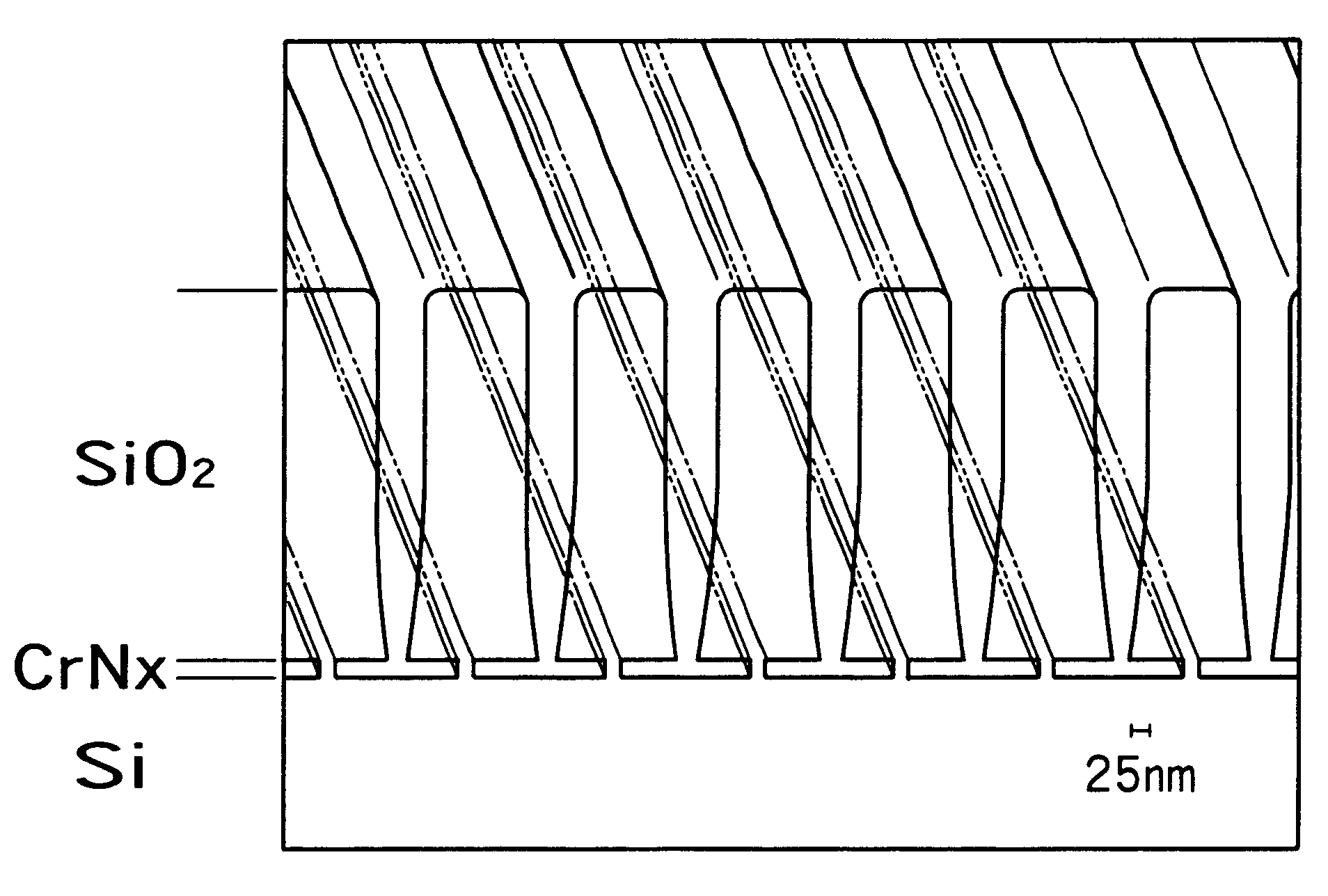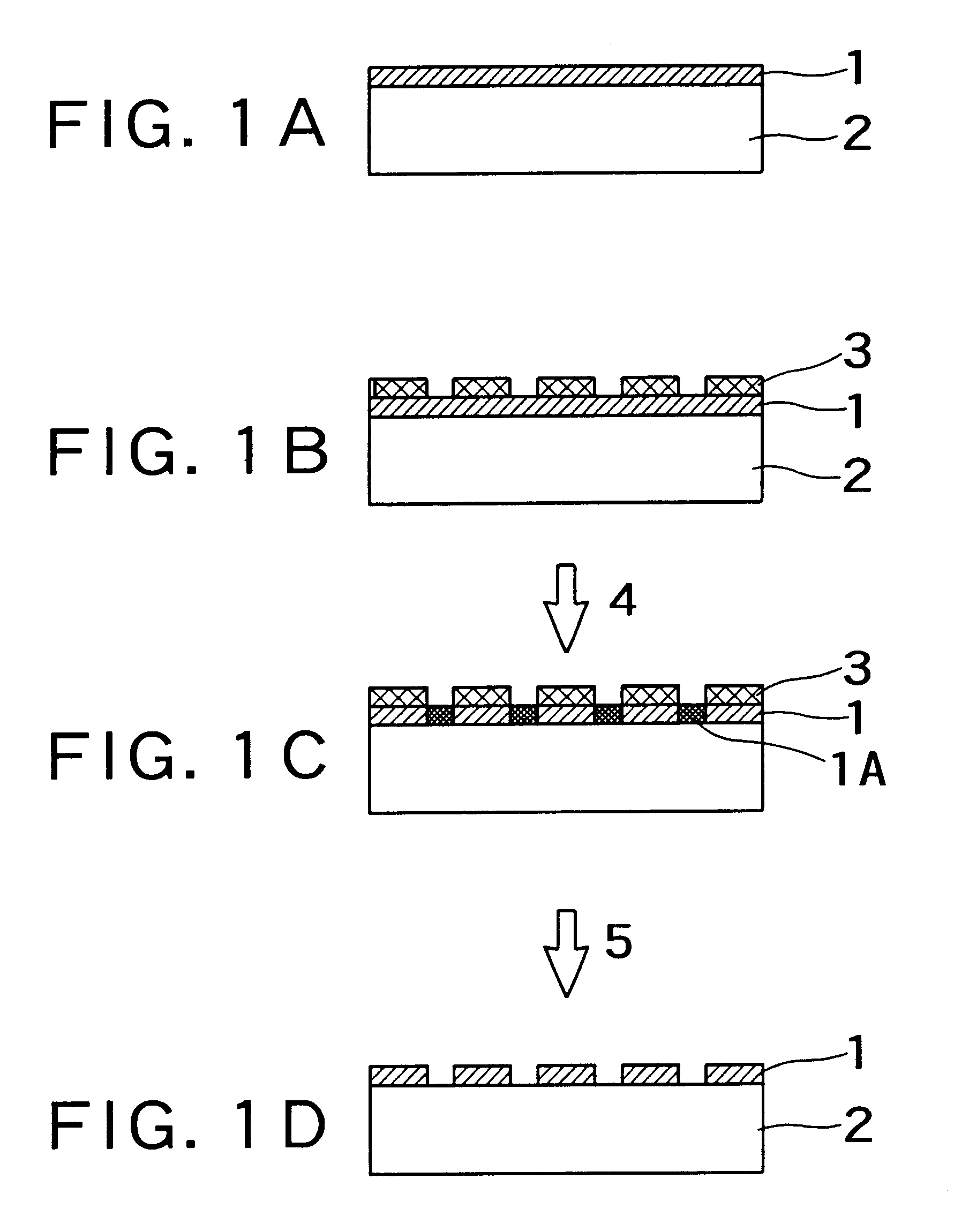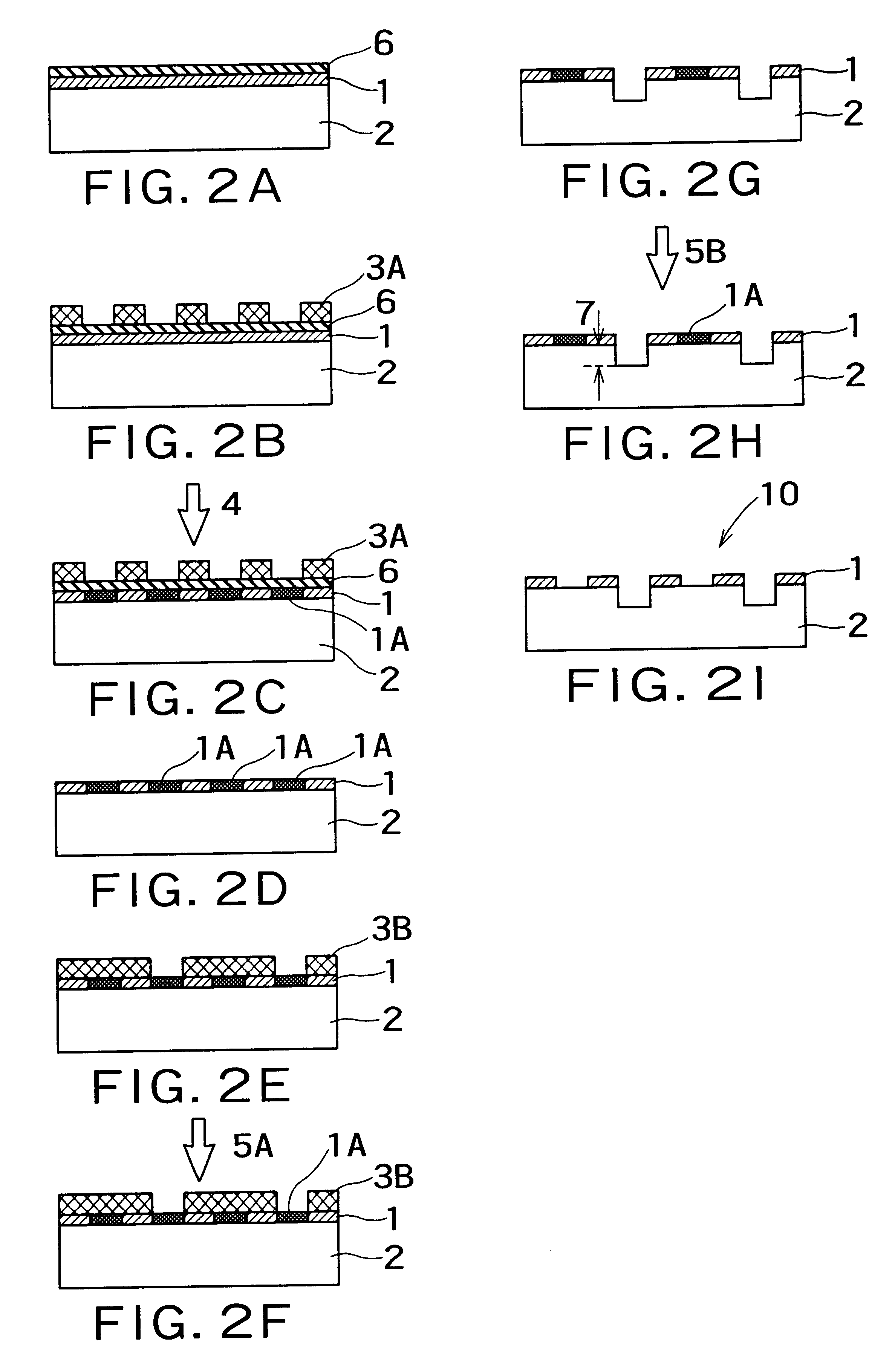Method of etching an object, method of repairing pattern, nitride pattern and semiconductor device
- Summary
- Abstract
- Description
- Claims
- Application Information
AI Technical Summary
Benefits of technology
Problems solved by technology
Method used
Image
Examples
first embodiment
The first embodiment will be explained below in greater detail with reference to the first to fifth examples of the invention.
first example
(First Example)
A photomask fabricating method using a chromium nitride (CrN.sub.x), taken as the first example of the invention, is first explained with reference to FIGS. 1A through 1D.
First referring to FIG. 1A, a chromium nitride film 1 was deposited on a substrate 2. More specifically, by introducing a cleaned 6.35 mm thick 6-inch quartz substrate 2 into a reactive sputtering apparatus, using Cr as the target material, the CrN.sub.x film 1 with 10 nm thickness as a opaque film, was deposited, using a mixed gas of a nitrogen / argon mixed gas under the pressure of 5 mTorr. After that, through ultrasonic cleaning, a mask blanks were obtained.
In case that a CrON film (not shown) as an anti-reflection film is to be formed on the CrN.sub.x film, the film is deposited in the same chamber, using a mixed gas of nitrous oxide (N.sub.2 O) and argon under to pressure of 5 mTorr such that the total thickness with the CrN.sub.x film 1 becomes 100 nm. Thereafter, through ultrasonic cleaning, a ...
second example
(Second Example)
Next explained is the second embodiment of the invention.
FIGS. 2A through 2I are cross-sectional views that show a manufacturing process according to the same embodiment. That is, these figures illustrate a manufacturing process for fabricating a single trench type Levenson phase shift mask according to the same.
First as shown in FIG. 2A, a chromium nitride layer 1 and a silicon oxide film 6 were deposited on a substrate 2. More specifically, by introducing a cleaned 6.35 mm thick 6-inch quartz substrate 2 into a reactive sputtering apparatus, using Cr as the target material, the CrN.sub.x film 1, 100 nm thick and functioning as a opaque film, was deposited, using an argon gas under the pressure of 5 mTorr. After that, through ultrasonic cleaning, a mask blanks were obtained. In case that a CrON film (not shown) as an anti-reflection film is to be formed on the CrN.sub.x film, the film is deposited in the same chamber, using a mixed gas of nitrous oxide (N.sub.2 O) a...
PUM
| Property | Measurement | Unit |
|---|---|---|
| Length | aaaaa | aaaaa |
| Length | aaaaa | aaaaa |
| Length | aaaaa | aaaaa |
Abstract
Description
Claims
Application Information
 Login to View More
Login to View More - R&D
- Intellectual Property
- Life Sciences
- Materials
- Tech Scout
- Unparalleled Data Quality
- Higher Quality Content
- 60% Fewer Hallucinations
Browse by: Latest US Patents, China's latest patents, Technical Efficacy Thesaurus, Application Domain, Technology Topic, Popular Technical Reports.
© 2025 PatSnap. All rights reserved.Legal|Privacy policy|Modern Slavery Act Transparency Statement|Sitemap|About US| Contact US: help@patsnap.com



